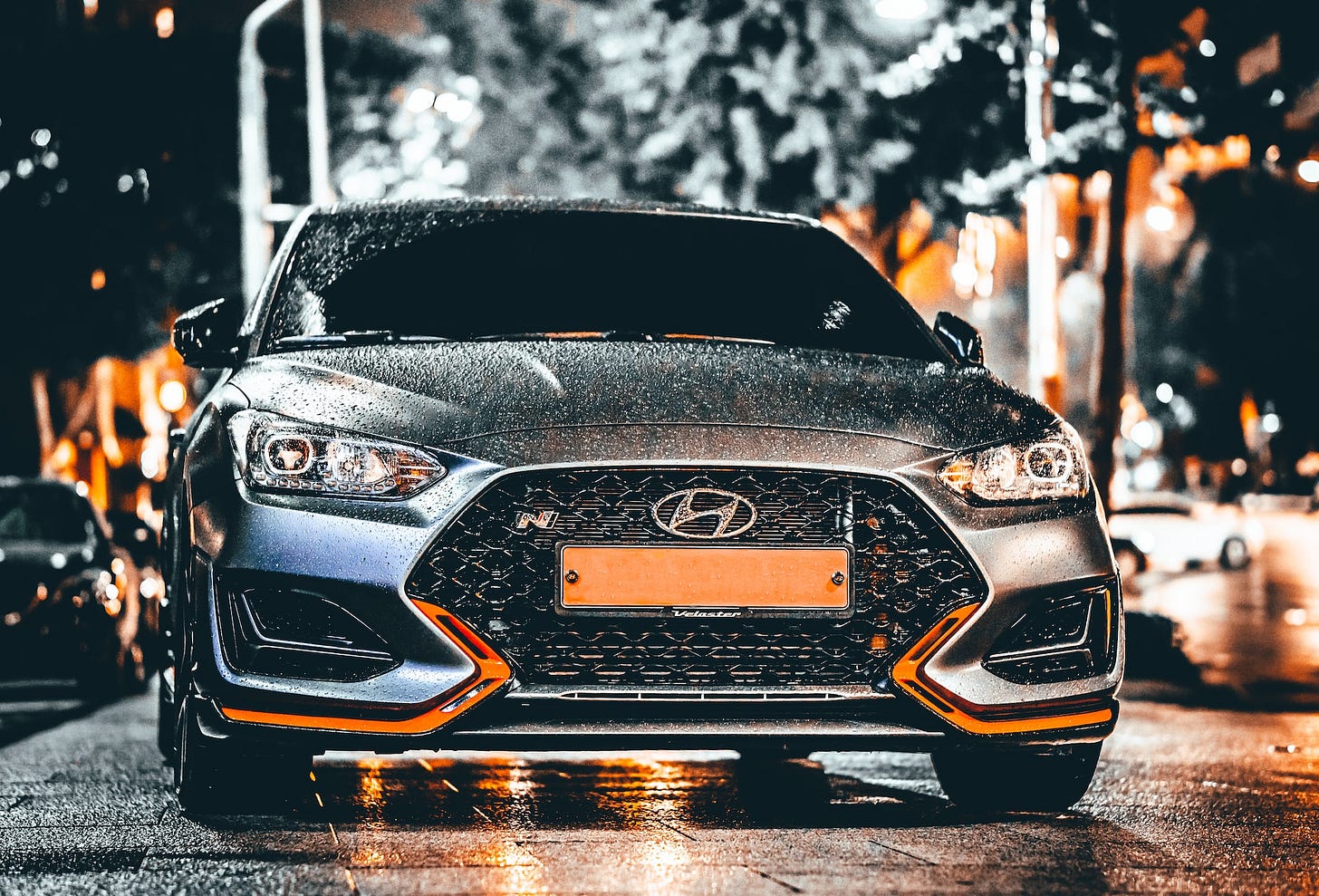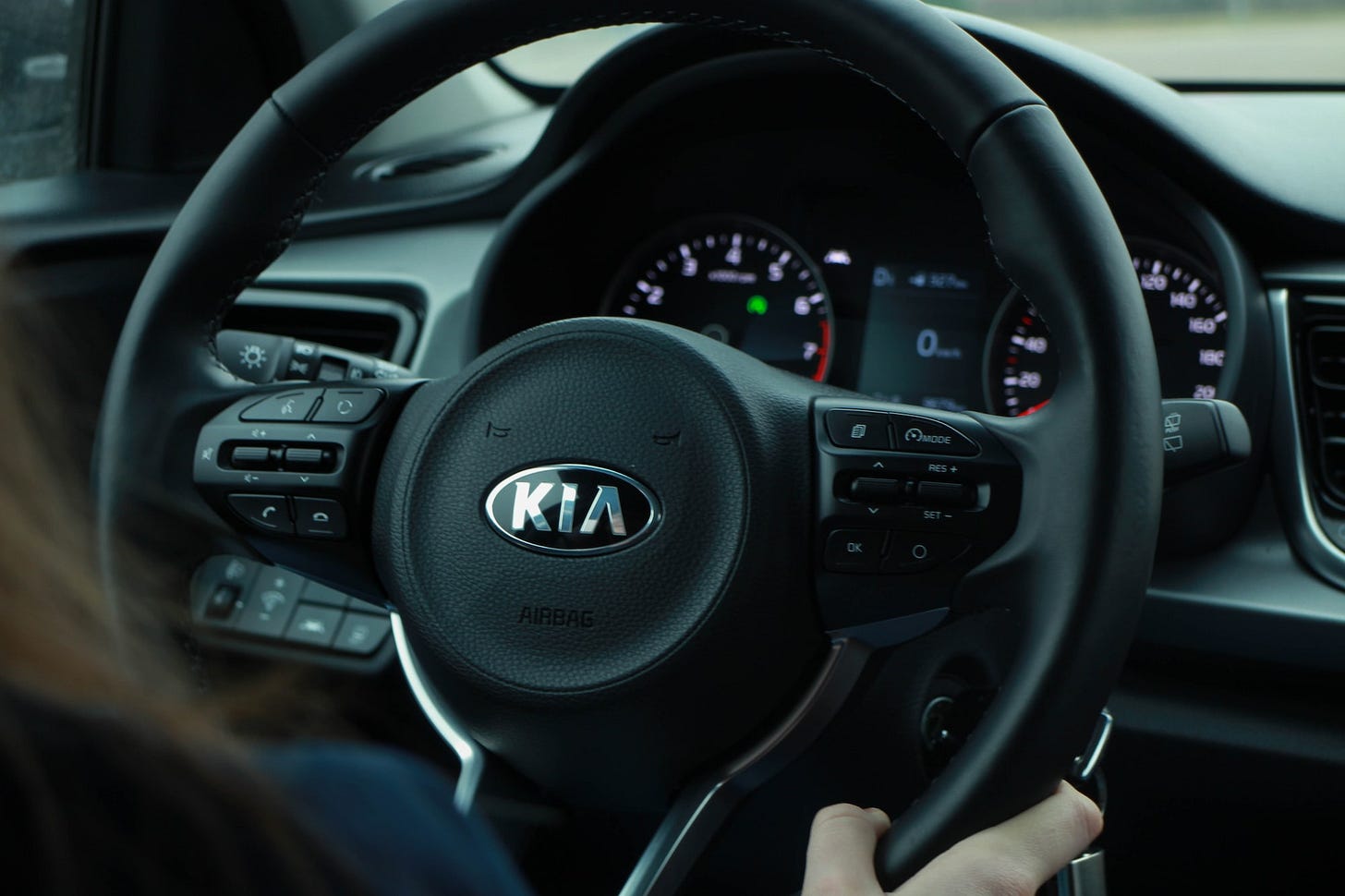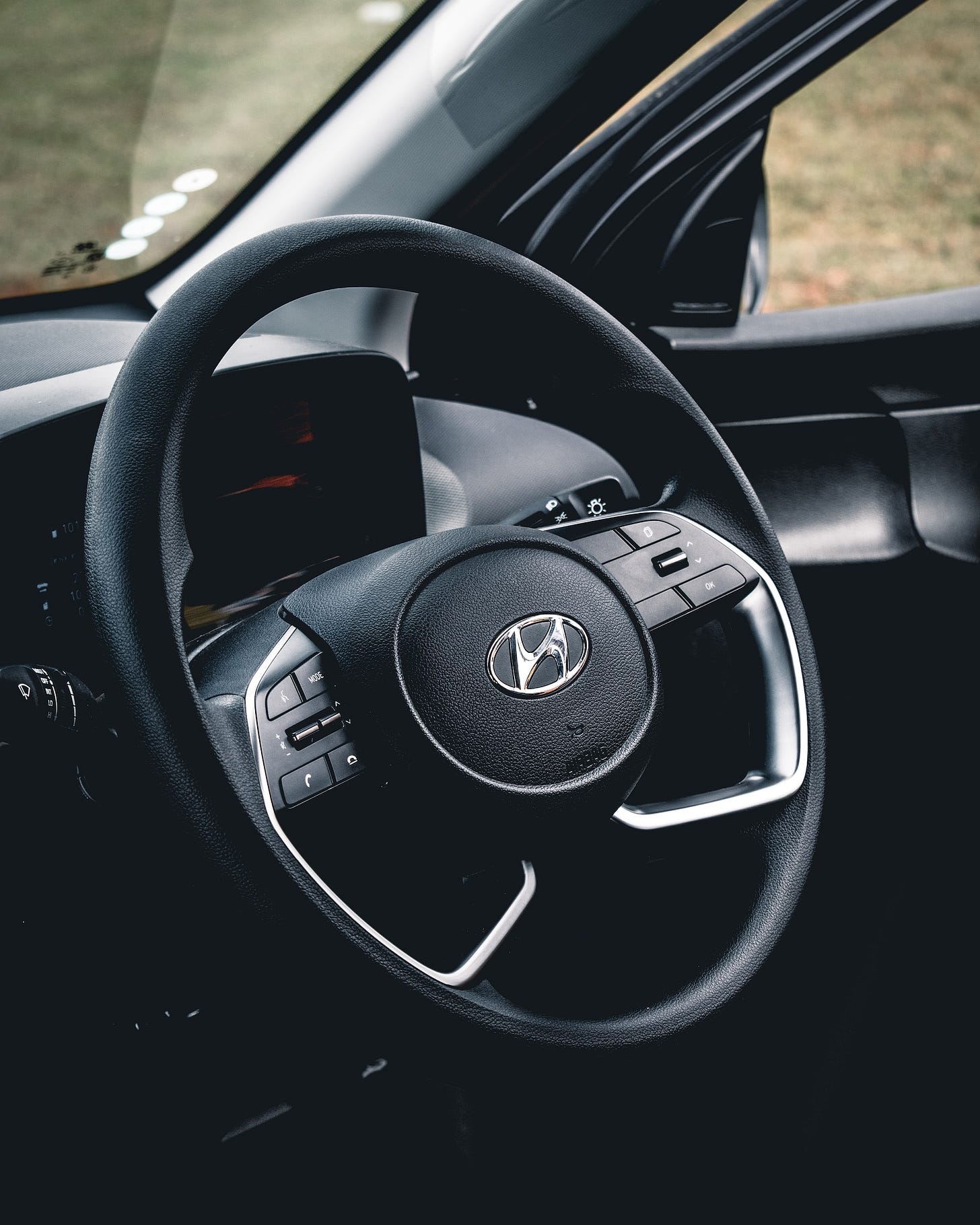Hyundai and Kia Agree to $200 Million Class Action Settlement Over US Car Thefts:

In what may be considered a landmark development in the auto industry, Korean automakers Hyundai Motor and Kia Corp have agreed to a massive $200 million settlement of a consumer class-action lawsuit. The lawsuit pertains to the escalating thefts of Hyundai and Kia vehicles across the United States, raising grave concerns about the security systems of these cars.
Since 2020, the U.S. has seen a startling rise in car thefts involving Hyundai and Kia vehicles.
drawing widespread attention to the efficacy of the companies' anti-theft measures.
This surge in car thefts was fueled in part by a series of TikTok videos that demonstrated how to bypass the ignition systems in Hyundai and Kia cars that didn't feature a push-button ignition or anti-theft immobilizer.
Regrettably, this rash of thefts has also resulted in a number of crashes and, tragically, eight fatalities. This grave issue triggered a consumer class-action lawsuit against Hyundai and Kia, resulting in the $200 million settlement announcement.
The settlement package offered by Hyundai and Kia includes multiple components designed to provide relief and recompense to the affected vehicle owners.
Approximately $145 million of the settlement fund will go towards out-of-pocket losses for consumers who have had their cars stolen. In this context, out-of-pocket losses include insurance deductibles, increased insurance premiums, and other theft-related losses that the car owners might have had to bear.

Moreover, for customers whose vehicles cannot accommodate security software upgrades, Hyundai and Kia will provide up to $300 to buy steering wheel locks or other anti-theft devices. This step signals an effort on the part of the automakers to not only mitigate the financial impact of the thefts but also to enhance the future security of these vehicles.
Payments for the total loss of vehicles, damage to vehicles and personal property, and insurance-related expenses are also included in the settlement. It covers owners of 2011 through 2022 model year Hyundai or Kia vehicles with a traditional "insert-and-turn" steel key ignition system. Other related expenses, such as car rental, taxi, or other transportation costs not covered by insurance, are also included.
The settlement will also reimburse owners for towing costs, stolen vehicles that suffered crashes or were never recovered, and payments for tickets or other penalties or fines incurred from a stolen vehicle.
The hefty $200 million settlement will undoubtedly impact Hyundai and Kia, not just financially but in terms of reputation as well. As automakers, they are entrusted with the responsibility of ensuring their vehicles are not just high-performing and fuel-efficient but also secure. This settlement will inevitably lead to a reassessment of their security systems, pushing them to invest more in enhancing vehicle safety.

From a broader perspective, this incident serves as a wake-up call for the entire auto industry, underscoring the crucial role of vehicle security in today's technology-driven world. As technology evolves and becomes more accessible, so do the methods criminals use to exploit it. The auto industry must remain vigilant in its efforts to stay one step ahead, investing in research and development to maintain robust security systems that can withstand increasingly sophisticated theft attempts.
In conclusion, while the settlement of this class-action lawsuit is a significant step in addressing the immediate concerns of Hyundai and Kia vehicle owners, it also sets a precedent for the automotive industry as a whole. It emphasizes the need for continuous innovation in security measures and the importance of consumer trust in a brand's commitment to safety.
Disclaimer: Some information on this site may be considered attorney advertising under your state’s laws and ethical rules. This legal news site and its content is for general information only and is not legal advice. Information on this site may be incomplete or out-of-date.
No attorney-client relationship is created between you and any attorney who publishes content or online forms on this site. Hiring a lawyer is an important decision that should not be based solely on advertisements.
📓
RELATED STORIES
Kia Boyz TikTok Challenge” - A Dangerous Trend Plaguing Our Cities
Hyundai and Kia Recalls 570,000 Major Models - Park Outdoors to Ensure Your Family’s Safety





